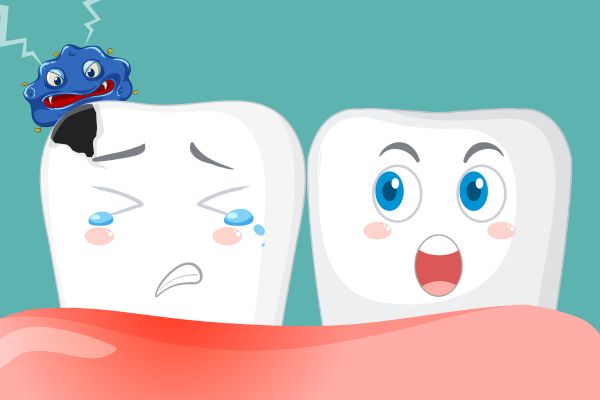Best Prescription and OTC Antibiotics For Tooth Infections

Infections in the teeth can be painful and sometimes require teeth removal. They may result in significant health issues. So it is best to take precautions in the first place.
A healthy mouth naturally resists infections. But once bacteria are there in the mouth, they can enter through holes in teeth caused by cavities, gum disease, or tooth trauma. That’s when they begin causing problems.
What is a tooth infection?
A tooth infection, or a dental abscess, is a common dental problem caused by bacteria invading the tooth’s pulp chamber and the surrounding tissues. This infection can cause excruciating pain and lead to severe consequences if left untreated.

The pulp chamber is the innermost part of the tooth that contains nerves, blood vessels, and connective tissues. When bacteria enter the pulp chamber, they can cause an infection, which leads to an accumulation of pus in the tooth’s root tip or gum. This build-up of pus causes pain, swelling, and inflammation in the affected area, which can lead to toothache, fever, and difficulty opening the mouth.
What are the stages of a tooth infection?
Tooth infections go through many stages of decay to become an abscess.
- Enamel decay: Enamel decay, also known as dental enamel erosion, is the wearing of the tooth’s protective outer layer. It can happen due to acidic foods and drinks. Some signs of enamel decay may include sensitivity issues. If you are experiencing enamel decay symptoms, you must see your dentist as soon as possible to prevent further damage to your teeth.
- Dentin decay: Dentin decay, also known as dentin caries, is a common dental problem that occurs when bacteria in the mouth produce acids. This acid slowly dissolves the hard, mineralized tissues of the tooth. It gradually erodes the enamel’s protective layer, exposing the softer dentin layer beneath.
- Pulp decay: Pulp decay, also known as dental pulp decay or pulpitis, is a condition in which the dental pulp of a tooth becomes inflamed or infected. The dental pulp is the soft inner part of the tooth that contains nerves, blood vessels, and connective tissues.
What are the symptoms of a tooth infection?
The most common symptom is a pain in the affected area. You can feel the discomfort from your infected tooth in the jaw, cheek, and neck since they are closely connected to many nerves.

Other indicators to watch out for are:
- Pain in the affected tooth or the surrounding area.
- Sensitivity to hot or cold temperatures.
- Swelling in the face, jaw, or neck.
- Redness or warmth in the area of the infection.
- Difficulty opening the mouth or swallowing.
- Bad breath or a foul taste in the mouth.
- Fever or chills (in more severe cases).
You must consult a dentist for treatment if you experience these symptoms. A tooth infection can spread to other body parts and cause serious health problems if left untreated.
What are the causes of a tooth infection?
Bacteria entering the tooth and surrounding tissues is the usual cause of tooth infections. As mentioned, the infection can occur if the natural defense, like tooth enamel, is damaged. Mainly tooth infections frequently arise due to cavities and gum damage.
Cavities and gum diseases are the direct results of poor oral hygiene and dental plaque buildup on and around the teeth. Other, less common causes of dental infections include dental operations and trauma like chipped teeth.
How to treat a tooth infection?
Depending on your symptoms and the spread of the infection, your dentist will decide the best course of action. Most people require antibiotics and painkillers.

Many may require surgery to drain an abscess and remove dead tissue. Severe infections may require weeks or even months of antibiotic therapy.
What is an antibiotic?
Antibiotics treat bacterial infections. They either kill the bacteria or inhibit their growth, which can help clear the infection and relieve its symptoms.
There are many different types of antibiotics for tooth infection. They include oral (in pill or liquid form), topical (as a cream or ointment), or intravenous (directly into the bloodstream through a vein).
*It’s important to note that antibiotics are ineffective against viral infections, such as the common cold or flu. Using antibiotics to treat viral infections can be harmful, as it can contribute to developing antibiotic resistance.
Which antibiotic works best for a tooth infection?
The kind of antibiotic you require will depend on the bacteria inflicting the ailment. Different antibiotic classes fight germs in various ways. Your dentist will select an antibiotic that will successfully treat your infection.
The most frequently prescribed antibiotics are amoxicillin and penicillin to treat tooth infections.
For some bacterial infections, doctors prescribe metronidazole for toothache or to treat a broader range of bacterial species. A doctor can advise using it in combination with penicillin for tooth infections.
Antibiotics containing penicillin are most common to treat tooth infections. However, many people are allergic to them. Tell your dentist if you have ever previously experienced allergic reactions.
Your dentist may recommend an alternative antibiotic. It could be clindamycin or erythromycin if you are allergic to penicillin.
How many antibiotics should you take, and for how long?
You will need to take antibiotics for about a week if you have a tooth infection. You must take an antibiotic medication two to four times per day, depending on the kind.
Ask the pharmacist if you’re unsure how to take prescribed medication.
Remember that it may take a few rounds of antibiotics for them to enter your system and start working against the illness.
Never skip any antibiotics your dentist has prescribed, even if your symptoms seem to disappear. If you don’t finish the course, some bacteria can survive, making the infection more difficult to treat.
Are there any over-the-counter remedies?
You should never delay visiting the dentist if you have a tooth infection. Because of how close your teeth are to your brain, an infection can travel fast to other tissues and organs.

Without a prescription, antibiotics are not available, but there are several things you can do at home to feel better until your appointment. They are over-the-counter antibiotics for tooth infections. This includes:
- Pain relievers, such as ibuprofen (Advil, Motrin) or acetaminophen (Tylenol), can help until you get an appointment.
- Gently rinse your mouth with lukewarm salt water.
- Avoid hot or cold foods if possible.
- Try to chew with the opposite side of your mouth.
- Use a soft toothbrush around the affected tooth.
The bottom line
Visit a doctor or dentist as soon as possible if you experience any signs of a tooth infection. Even if the infection initially seems minor, it can quickly worsen if left untreated. Follow the directions carefully and take the antibiotics as prescribed if your dentist gives you a prescription.
It’s best to go for regular dental checkups to prevent tooth or mouth infections. If you’re looking for a reliable dental clinic with the best services, book an appointment with Genuine Dental today.